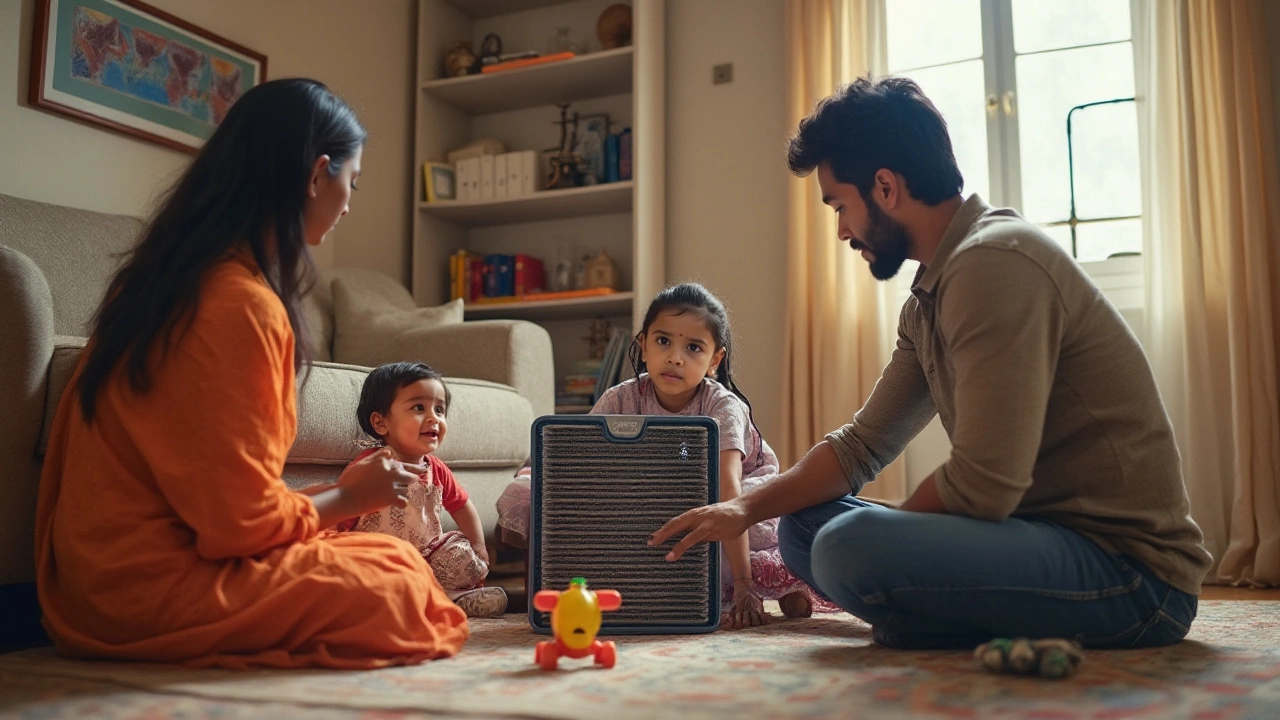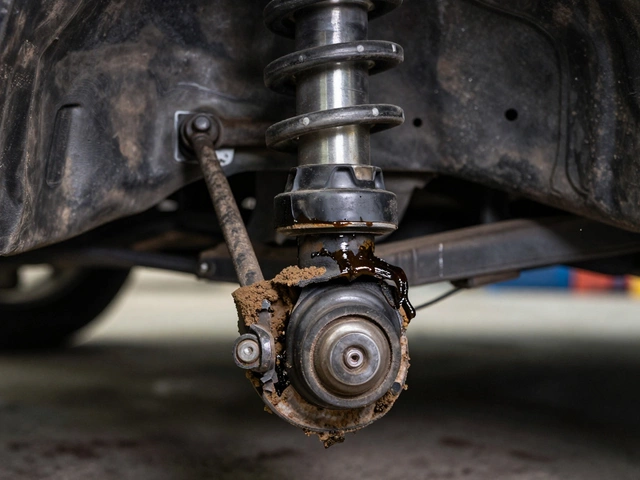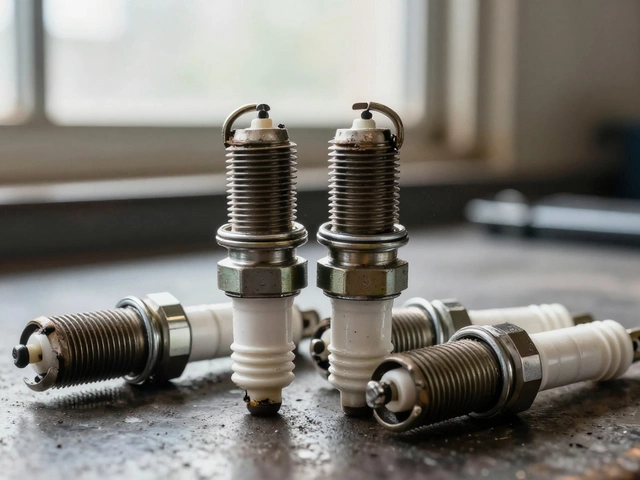
The quality of air inside our homes plays a crucial role in our health and comfort, especially as we spend significant time indoors. This leads many homeowners to wonder about the best type of air filter for their residences. Among the various solutions, the MERV 14 air filter stands out due to its high filtration capabilities, capturing particles that are often overlooked by less efficient filters.
Before making the decision to upgrade your home's air filtration system, it's essential to understand what a MERV 14 filter can offer, and whether it's a practical choice for a residential environment. This exploration considers the benefits and potential complications that come with using such a high-rated filter at home.
- Introduction to MERV Ratings
- Benefits of Using MERV 14 Filters
- Potential Drawbacks in Residential Settings
- Comparing MERV 14 with Other Ratings
- Tips for Choosing the Right Filter for Your Home
Introduction to MERV Ratings
Anyone exploring air filters for their home is bound to come across the term 'MERV rating,' a crucial aspect in determining a filter's effectiveness. But what exactly does this mean, and how does it impact the air quality in your home? The acronym MERV stands for Minimum Efficiency Reporting Value, a standard that rates the efficacy of air filters. Established by the American Society of Heating, Refrigerating and Air-Conditioning Engineers (ASHRAE), this system provides a scale from 1 to 20. Each level indicates the filter's ability to capture particles of varying sizes, ranging from large debris to micro-scale pollutants. For homeowners pondering a MERV 14 air filter, understanding these ratings is the first step in making an informed decision.
Higher MERV ratings like 14 are designed to trap smaller particles such as pollen, dust mites, and even bacteria, offering a remarkable advantage in maintaining indoor air quality. Filters with a rating around 14 can capture particles as small as 0.3 to 1.0 microns. This means they are suitable for environments that require high-level filtration, like hospitals and laboratories. However, does this capability make them suitable for residential settings, or could it be overkill for a typical home?
"A higher MERV rating implies a higher ability to remove dust and other particulates," explains industry expert John Smithson, "but one must balance between filtration needs and system capabilities".
It's essential to recognize that while a higher MERV rating provides superior filtration, it also requires more energy to push air through the denser filter. This means potentially increased energy bills and wear on your HVAC system if it's not designed to handle it. Therefore, the sweet spot for homes, commonly lies between MERV 8 and 12, wherein air quality is improved without overtaxing the system. Yet, for those with specific concerns about air quality or occupants with allergies or respiratory issues, stepping up to a MERV 14 could be justifiable. Interestingly, it's not just the size of particles but their quantity and type that affect the decision.
Let's consider a practical scenario: If a household resides in an area with significant pollution or has multiple pets, the additional filtration provided by a higher MERV rating can indeed be beneficial. But with a typical home environment, often a lower rating suffices, ensuring good air quality while maintaining efficiency and longevity of the HVAC system. Comprehending these ratings allows homeowners to make knowledgeable choices about which filters align with their needs, avoiding unnecessary costs and potential system strain.
Benefits of Using MERV 14 Filters
Choosing a MERV 14 filter for your home is like moving your indoor air quality into a realm that prioritizes health and hygiene with unparalleled dedication. These filters have a remarkable ability to capture particles as small as 0.3 to 1.0 microns—think of pollutants such as pollen, dust mites, mold spores, and even tobacco smoke. This capacity to trap tiny particles means that the air circulating in your home can be significantly cleaner and healthier, which is especially important for households with allergy sufferers or individuals with compromised immune systems.
Another substantial benefit of air filters with such high efficiency is their influence on reducing indoor allergens. Those with sensitivity to airborne particulates will notice fewer symptoms like sneezing or coughing when breathing air treated by a MERV 14 filter. Even more, it offers an invisible layer of protection against fine particulates from outdoor pollution that can find their way indoors, making it a smart choice for urban dwellers.
In light of the current medical understanding, the filtration abilities of these air filters mirror the preferences of hospitals which are designed to maintain sterile environments. According to the American Society of Heating, Refrigerating and Air-Conditioning Engineers (ASHRAE), high MERV ratings are crucial for maintaining clean air in sensitive settings. While one might worry about whether such specifications are suitable for home use, many manufacturer tests continuously show that MERV 14 filters effectively balance air quality with airflow needs, providing an excellent compromise in residential applications.
Moreover, while MERV 14 filters are notably advanced, they also contribute positively to the overall maintenance of HVAC systems. By efficiently capturing finer particulates, these filters assist in reducing the accumulation of dust and debris within the ductwork, which means less frequent cleaning and prolonged life expectancy for the HVAC system as a whole. A cleaner system operates more efficiently, which can, in turn, lower energy costs—a hidden yet significant benefit of using a higher-rated filter.
To make the most of these benefits, it's crucial to ensure proper installation and maintenance of your MERV 14 filter. It's also essential to check manufacturer's guidelines regularly to maintain peak performance without inadvertently placing undue pressure on your HVAC system. While concerns about airflow and system compatibility may arise, many of these are mitigated by choosing the right size and type of filter designed specifically for residential settings.
"A higher MERV rating generally means more effective particle removal capability, which can improve health outcomes by reducing airborne allergens and dust," says the Environmental Protection Agency (EPA).
So, investing in a MERV 14 filter is about more than just cleaner air; it's about peace of mind, knowing that you're providing the healthiest possible environment for your loved ones. As households continue to look for ways to optimize their air quality, the relevance of these highly efficient filters becomes ever more significant. Reflecting on both empirical evidence and user experiences, the choice to upgrade to a MERV 14 filter continues to demonstrate a valuable commitment to health and efficiency in residential living spaces.

Potential Drawbacks in Residential Settings
When it comes to installing a MERV 14 air filter in your home, it's not just about improved filtration; there are several drawbacks to consider. Many homeowners are drawn to these filters because they capture finer particles, contributing to a cleaner living environment. Yet, this level of filtration can also have unintended consequences, primarily related to airflow. MERV 14 filters create more resistance than lower-rated filters, potentially straining HVAC systems that aren't designed for such resistance. This strain can lead to decreased system efficiency and higher energy consumption, which might negate the initial intentions of improving air quality.
Increased energy use isn't just a concern for the environment; it affects your wallet too. Higher utility bills can be an unwelcome surprise as the HVAC system works harder to maintain comfortable temperatures. A study by the American Society of Heating, Refrigerating and Air-Conditioning Engineers (ASHRAE) highlights that a system designed for a lower MERV rating may use 10% to 20% more energy when equipped with a higher-rated filter. These numbers underscore the importance of ensuring your HVAC unit is compatible with such efficient filters before making the switch.
"It is crucial for homeowners to consult with HVAC professionals when considering upgrades to their air filtration systems," said Dr. Linda Schulte, an expert in indoor air quality. "Incorrect setups can lead to more harm than good, causing mechanical issues over time."
The mechanical implications are another significant drawback. The heightened resistance exerted by a MERV 14 filter can lead to wear and tear much quicker than systems designed with lower resistance in mind. This wear can eventually necessitate more frequent maintenance, which adds to ongoing costs and inconvenience. Additionally, the strong filtration capability might not always be necessary. Homes without specific requirements, such as dealing with extreme allergens or pollutants, might find the benefits to be marginal at best, compared to the added maintenance and expense.
Another dimension to this issue is the potential disappointment in expectations. Many assume that installing a high-MERV filter will instantly solve all air quality issues, ignoring other contributing factors like ventilation, humidity control, and periodic cleaning. Air quality is a complex interplay of various elements, and filtration is just one. A holistic approach is usually more effective. Therefore, evaluating these factors beforehand could save unnecessary investment.
Considering Your Home's Specific Needs
The decision to use a MERV 14 filter should take into account the specific needs and construction of your home. Factors such as the presence of individuals with allergies, pets, or environmental conditions can influence this decision. Often, a consultation with a certified HVAC technician can provide the insights needed to make an informed choice. They can offer advice tailored to your home and its systems, ensuring that the benefits of a MERV 14 filter are fully realized without the pitfalls of increased energy consumption and system wear.
Comparing MERV 14 with Other Ratings
When it comes to choosing the right air filter for your home, understanding the MERV rating system is vital. This system, short for Minimum Efficiency Reporting Value, is designed to evaluate a filter's ability to capture particles. Ranging from 1 to 20, these ratings enable us to assess the effectiveness of different air filters. A higher MERV rating means the filter can capture smaller particles more efficiently. MERV 14 stands near the top of this scale, making it an excellent choice for those particularly concerned with air quality and pollution control within their living spaces. It captures particles as small as 0.3 microns, which includes dust mites, pet dander, and even bacteria.
While the efficiency of a MERV 14 filter certainly makes it appealing, it's important to compare it to other options to see if it suits your specific requirements. Let's consider MERV 8 filters, which are commonly recommended for standard households. MERV 8 filters are quite effective at trapping larger particles such as dust, pollen, and mold spores. They provide a balance between efficiency and energy consumption, allowing for good air circulation without overtaxing your HVAC system. However, they might not be as effective at capturing tinier particles, which could be a drawback for those with severe allergies or respiratory conditions.
Another key comparison can be made between MERV 14 and MERV 11 filters. MERV 11 serves as an ideal middle ground, offering improved filtration over MERV 8 while not being as restrictive as MERV 14. MERV 11 is capable of trapping many allergens and finer dust particles. It is often advisable for households with pets or individuals with mild sensitivities. That said, with a jump to MERV 14, the proficiency in capturing even smaller and more harmful particles increases significantly. Interestingly, a filter's MERV rating impacts not only its efficiency but also its effect on the airflow rates of your HVAC systems, potentially leading to higher energy usage.
Energy consumption concerns lead us to the question: is a higher MERV rating always better? The right balance between air quality and system efficiency might suggest sticking to filters between MERV 8-13 for residential use unless specific health concerns necessitate a higher grade. The following table succinctly compares these MERV ratings:
| MERV Rating | Particles Captured | Suitable For |
|---|---|---|
| MERV 8 | Large particles like dust and pollen | Standard households |
| MERV 11 | Smaller allergens and dust particles | Homes with pets or mild allergies |
| MERV 14 | Very small particles including some bacteria | High sensitivity settings or health concerns |
Given this comparison, it's clear that choosing the right MERV rating depends largely on individual needs and circumstances. One must weigh the advantages of improved air quality against potential energy costs and system strain. A savvy choice is not merely about selecting the highest rating available but rather finding a filter that strikes the perfect harmony for your household's health and efficiency. As the legendary environmentalist Rachel Carson once said,
"For the first time in the history of the world, every human being is now subjected to contact with dangerous chemicals, from the moment of conception until death."While Carson spoke to the broader spectrum of environmental hazards, her words remind us of the serious consideration required when choosing air filters for the sanctum of our homes.

Tips for Choosing the Right Filter for Your Home
Choosing the right air filter for your home is a decision that balances health, cost, and system efficiency. It's not just about getting the most expensive option or the one with the highest MERV rating. Instead, it's about understanding what your home needs, how your current HVAC system handles airflow, and what your budget allows. Let's delve into some practical steps that might help you make an informed choice.
Assess Your Home's Air Quality Needs
Before investing in a MERV 14 filter, start by assessing your home’s specific air quality needs. Consider if anyone in the household suffers from allergies or respiratory conditions, as filtering smaller pollutants could be beneficial in these scenarios. Also, think about your home's location, the presence of pets or smokers, and even the kind of activities that occur regularly. These factors can heavily influence which filter is best suited for your home environment.
Understanding Your HVAC System Compatibility
Check if your current HVAC system is compatible with higher-rated filters like the MERV 14. These filters can cause more resistance and might force your system to work harder, possibly leading to increased energy consumption or strain on the system. It's always a good idea to consult the manufacturer’s guide or speak with a professional HVAC technician to ensure your system can accommodate a more restrictive filter without causing issues.
"Finding the right balance between effective filtration and system efficiency ensures both clean air and a well-functioning HVAC system," advises HVAC expert John Thompson.
Cost Considerations and Lifecycle
Higher MERV-rated filters often come with a higher price tag, and they may require more frequent replacements due to their density and filtration capabilities. Consider not only the upfront cost but also the long-term expenses associated with regular filter changes. Some homeowners might find a slightly lower MERV rating provides an ideal compromise between effective filtration and reasonable costs.
Exploring Alternative Filter Options
If a MERV 14 filter feels too restrictive or costly, explore other options that might suit your needs better. MERV ratings between 7 and 13 still offer substantial air cleaning and might be appropriate for most residential needs. Additionally, consider newer technologies such as electrostatic or carbon filters which could offer additional benefits like odor elimination.
Installation and Maintenance Best Practices
Once you've chosen the right filter, proper installation and maintenance are key to ensuring its effectiveness and longevity. Always follow the manufacturer's instructions for both installation and regular maintenance. Establish a schedule for checking and replacing filters, as even the best filter won't perform well if it's clogged or improperly installed.





